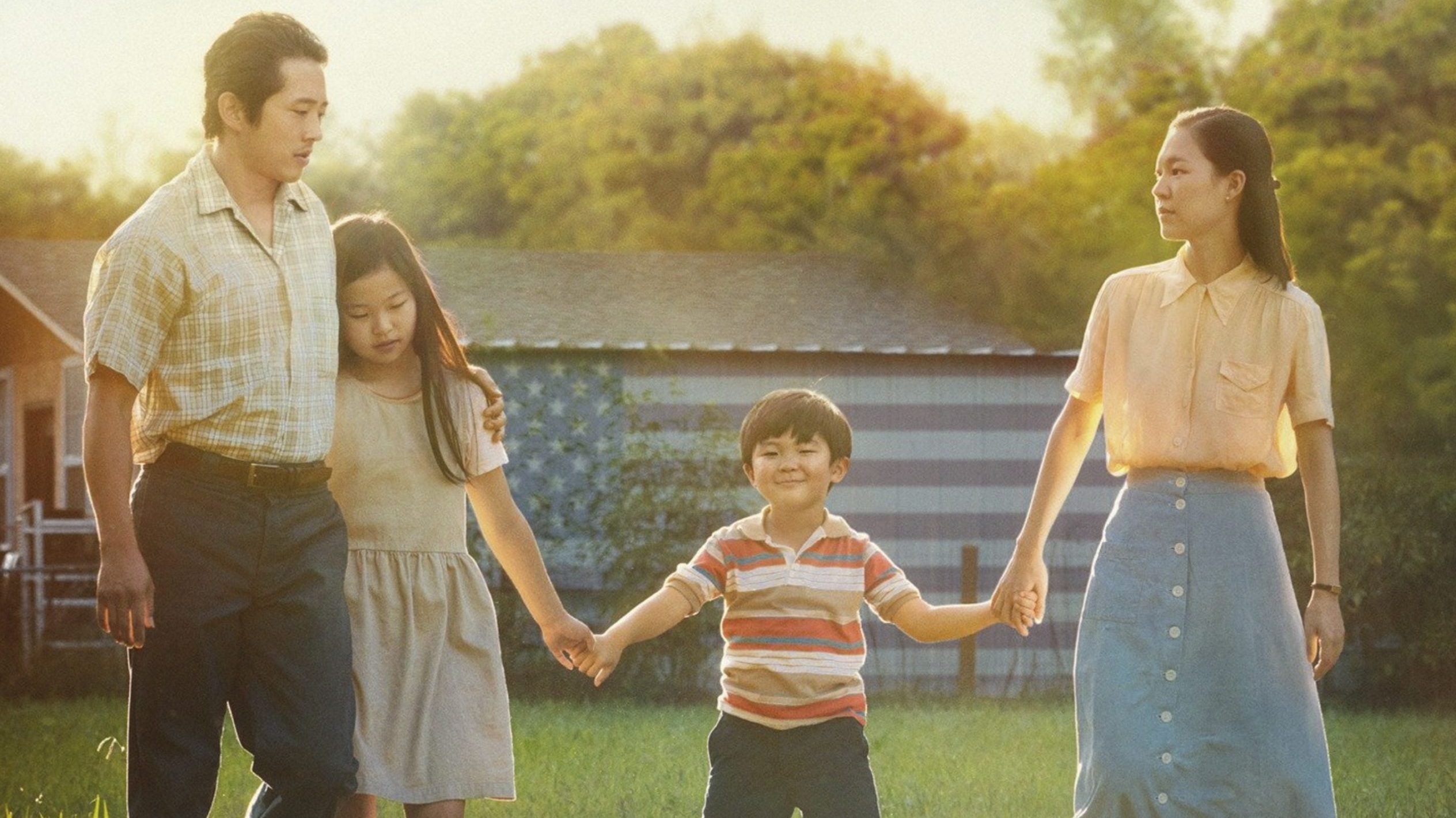The American Dream. Much like love, you know it when you see it. Minari is very much a story about the American Dream. Compared to the history of movies, though, Minari represents a wider, more inclusive version of that dream, that hopefully will open the door for more tired, poor, huddled masses as the Statue of Liberty states. Being wider than Arkansan Koreans should be interesting to see, that’s for sure.
Lee Isaac-Chung’s “not at all” semi-autobiographical tale is about the Yi family. Struggling to save and plant roots in 1980s California, baby chick gender identifiers Jacob (Steven Yeun) and Monica (Ye-ri Han), decide to pick up and movie to Arkansas, into a “home with wheels” and a ton of land for farming with their kids Anne (Noel Kate Cho) and David (Alan Kim). Jacob sees this movie as his chance to do what other immigrants have done before him: buy some land, sell some crops, make more money, live the dream! Monica is more apprehensive about the change of scenery, in part because she was comfortable in California, and in part because she’s wary of the upcoming addition to the family: grandma Soonja (Yuh Jung Youn).
A great movie about immigrants slowly weaves two disparate cultures into something brand new and specific, which Minari does to perfection. The easy bits are those fish out of water moments for the Arkansas residents and Yi family, like Soonja’s exhilaration at WWE matches or an Arkansas girl making up jibberish to see if she can stumble on a Korean word. What Minari does so beautifully is take those initial fish out of water moments, and see the Yis absorbing those little experiences into a new thing. Situations that initially look real stupid like water sticks or Sunday cross penance change start to look differently as the family becomes more immersed into this new home they’re building. Tonally, Chung’s script and direction evolves with the story, starting light and breezy and becoming deeper and more sobering as stress and life’s pressures bear down on the characters, who use their mixture of life experiences to determine the best path forward based on their specific cultural experiences. When the “melting pot” is referred to for the United States population, Minari’s story is a perfect little encapsulation of how the melting works.
While Lee Isaac Chung handles the writing and directing of Minari, it’s his Yi family that hopefully all become stars or superstars after this film, since they all deliver wonderful performances, showcasing different parts of the immigrant experience. Steven Yeun continues to show why he’s one of the more versatile actors in Hollywood, going from killing zombies to a bit of casual murder to this performance. Yeun takes something we know, the dreamer, and gives him all sorts of interesting traits as he tries to literally and figuratively plant roots. The women in Jacob’s life are equally as impressive: a couple maybe moreso. Noel Kate Cho makes older sister Anne a girl torn between growing up quickly and wanting to be a kid; Cho makes Anne the Yi family’s rock despite the conflict swirling within her. Yeun’s partner, Ye-ri Han, gets saddled with the nagging wife trope early in the movie, but her character probably evolves the most of anyone in the movie, and Han really sells Monica’s arc as she comes to terms with her new life and what her dream really is. And the final lady, Yuh Jung Youn, steals the show, as David calls her, being “not even a real grandma.” Youn has a blast drinking special mountain water (Mountain Dew, the best running joke in the movie), watching oiled men beat each other up on TV, and cursing up a storm while she tries to connect with her grandkids and deal with the hand she was dealt. Soonja’s relationship with David is the best part of the movie, as we see the forced pairing slowly understand and love each other. But the big breakout here is Alan Kim’s David, a smile generating machine. Kim’s infectious delight and wonder at the world around him lead to brief moments of genius followed by humorous moments of naivete that make it clearly Lee Isaac Chung probably sees a lot of David inside of himself, formed by all manner of observation into an entirely new type of American, and we’re all the better for it.
Minari, like many a great film before it, uses extreme cultural specificity to achieve thematic universality. It felt icky writing something that pretentious. Let’s try again. Using things like motor home exorcisms, chewing tobacco & board games, and Koreans in trucker hats and tank tops, Lee Isaac Chung takes something like his personal upbringing and finds a way to make it relatable to every audience member who’s moved to a new place, and wanted the American dream! There, much better. Now let’s get some of that mountain water.

